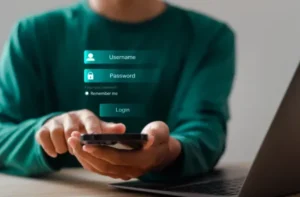Finding the right words to express openness and warmth in professional communication can make a huge difference. Whether you’re following up on an email, offering support, or encouraging someone to get in touch, using thoughtful phrasing is crucial for making your message feel personal, welcoming, and empathetic.
These alternatives to “please don’t hesitate to reach out” can help you convey the same sentiment, but in a way that feels even more genuine and tailored to your specific communication style.
What Does “Please Don’t Hesitate to Reach Out” Mean?
The phrase “please don’t hesitate to reach out” is commonly used to encourage someone to contact you or ask for help without feeling reluctant or unsure. It expresses a willingness to assist and reassures the person that their communication is always welcome. It’s an invitation for the recipient to reach out at any time they need guidance, clarification, or support.
When to Use “Please Don’t Hesitate to Reach Out”
This phrase is typically used in professional settings when you’re offering help, support, or follow-up. It’s especially useful in emails, after meetings, or in customer service interactions. The key is to create an inviting, open tone that encourages further interaction without pressure, ensuring that the person feels comfortable coming to you with any questions or concerns.
Is It Professional/Polite to Say “Please Don’t Hesitate to Reach Out”?
Yes, it is professional and polite to use “please don’t hesitate to reach out,” but like any phrase, it depends on the context. In most formal and semi-formal communications, it strikes the right balance between being courteous and approachable. However, for a more personal or creative tone, there may be other alternatives that feel warmer or more fitting to the situation.
Alternatives for Please Don’t Hesitate to Reach Out:
- Feel Free to Contact Me
- Don’t Hesitate to Get in Touch
- Please Reach Out Anytime
- I’m Here to Help
- Feel Free to Drop Me a Line
- Please Don’t Hesitate to Reach Out if You Need Anything
- I Look Forward to Hearing From You
- Let Me Know if You Need Anything
- I’m Happy to Assist
- Please Don’t Be Shy About Reaching Out
- Feel Free to Drop Me a Message
- Let’s Stay in Touch
- I’m Just an Email Away
- I’m Always Available to Help
- Please Feel Free to Get in Touch
- I’m Available If You Need Assistance
- Feel Free to Reach Out Anytime
- I’m Happy to Help With Anything You Need
- Please Feel Free to Contact Me for Any Questions
- I’m Always Here If You Need Me
- Feel Free to Reach Out If You Need Any Further Clarification
- I’m Available to Answer Any Questions You Have
- Please Let Me Know If You Need Any Help
- I’m Just a Message Away
- Please Don’t Hesitate to Contact Me
- I’m Here if You Need Anything
- Please Don’t Hesitate to Get in Touch with Any Concerns
- I’m Always Here to Support You
- Please Don’t Hesitate to Reach Out If You Have Any Feedback
- Feel Free to Get in Touch If You Need More Information
1. “Feel Free to Contact Me”
- Meaning: Encourages someone to reach out without hesitation or reservation.
- Definition: A friendly and approachable way to express openness.
- Explanation: This phrase invites the recipient to make contact without feeling pressure or obligation.
- Example: “Feel free to contact me if you need further information on the project.”
- Tone: Warm, casual.
2. “Don’t Hesitate to Get in Touch”
- Meaning: Implies that reaching out is easy and welcomed.
- Definition: A polite invitation to reach out at any time.
- Explanation: This alternative is similar to the original phrase, with a slightly more relaxed tone.
- Example: “Don’t hesitate to get in touch if you have any questions.”
- Tone: Friendly, open.
3. “Please Reach Out Anytime”
- Meaning: A direct invitation for the person to contact you whenever needed.
- Definition: Emphasizes availability and willingness to assist.
- Explanation: This phrase expresses openness without pressure and assures the recipient that you are always available to help.
- Example: “Please reach out anytime if you need assistance with the software.”
- Tone: Reassuring, available.
4. “I’m Here to Help”
- Meaning: Reassures the recipient that you are available for support.
- Definition: A supportive and approachable way to offer assistance.
- Explanation: Perfect for situations where you want to convey that you’re ready and eager to provide help.
- Example: “If you need anything, just let me know—I’m here to help!”
- Tone: Supportive, empathetic.
5. “Feel Free to Drop Me a Line”
- Meaning: A casual invitation to send a message or contact you.
- Definition: A more informal and friendly way of encouraging someone to reach out.
- Explanation: This phrase works well when the tone of your communication is more relaxed.
- Example: “Feel free to drop me a line if you want to discuss this further.”
- Tone: Casual, friendly.
6. “Please Don’t Hesitate to Reach Out if You Need Anything”
- Meaning: A specific invitation to contact you if any further assistance is required.
- Definition: Reassures the person that they can contact you for anything they might need.
- Explanation: This phrase is highly reassuring and communicates a strong willingness to help.
- Example: “Please don’t hesitate to reach out if you need anything regarding your application.”
- Tone: Reassuring, kind.
7. “I Look Forward to Hearing From You”
- Meaning: Signals eagerness to receive a response or message.
- Definition: A warm way to invite follow-up communication.
- Explanation: This phrase expresses anticipation for the other person’s response or inquiry.
- Example: “I look forward to hearing from you regarding your availability for the meeting.”
- Tone: Eager, professional.
8. “Let Me Know if You Need Anything”
- Meaning: An offer to assist with any questions or concerns.
- Definition: A more casual way of offering help.
- Explanation: This is an approachable way to say you’re open to questions or further communication.
- Example: “Let me know if you need anything while preparing your presentation.”
- Tone: Helpful, informal.
9. “I’m Happy to Assist”
- Meaning: Expresses your willingness to help in a polite, professional manner.
- Definition: A more formal way of expressing your readiness to help.
- Explanation: This phrase is often used in customer service or formal emails to assure the recipient of your assistance.
- Example: “If you have any questions, I’m happy to assist you further.”
- Tone: Professional, polite.
10. “Please Don’t Be Shy About Reaching Out”
- Meaning: Gently reassures the person that they are welcome to contact you without hesitation.
- Definition: A more casual and personable way to encourage someone to reach out.
- Explanation: This is a warm and friendly invitation for someone to feel comfortable contacting you.
- Example: “Please don’t be shy about reaching out if you need clarification on the report.”
- Tone: Gentle, approachable.
11. “Feel Free to Drop Me a Message”
- Meaning: A casual invitation to get in touch.
- Definition: A more informal way of saying you’re available to chat or assist.
- Explanation: Works well in less formal communications where you want to keep things light and approachable.
- Example: “Feel free to drop me a message if you want to go over any details.”
- Tone: Casual, friendly.
12. “Let’s Stay in Touch”
- Meaning: Suggests ongoing communication and availability.
- Definition: Encourages continued contact in a non-pressuring way.
- Explanation: This is a great alternative when you want to express a desire for future communication.
- Example: “Let’s stay in touch to ensure everything goes smoothly with the project.”
- Tone: Friendly, collaborative.
13. “I’m Just an Email Away”
- Meaning: Reassures someone that reaching out is easy and accessible.
- Definition: A more informal, yet reassuring, way to say you’re available to assist.
- Explanation: This phrase is helpful in situations where you want to make yourself more approachable.
- Example: “I’m just an email away if you need further details on the proposal.”
- Tone: Informal, reassuring.
14. “I’m Always Available to Help”
- Meaning: Emphasizes your constant availability for assistance.
- Definition: A professional way to reassure someone that you’re always there to provide help.
- Explanation: This phrase conveys reliability and willingness to support others whenever needed.
- Example: “If you need anything, I’m always available to help you out.”
- Tone: Reliable, dependable.
15. “Please Feel Free to Get in Touch”
- Meaning: A polite and welcoming invitation to contact you.
- Definition: Encourages the person to reach out with ease.
- Explanation: It’s a professional, yet warm way to invite communication.
- Example: “Please feel free to get in touch if you need further assistance with your account.”
- Tone: Polite, inviting.
16. “I’m Available If You Need Assistance”
- Meaning: This indicates that you’re readily accessible for any kind of help.
- Definition: A polite way to let someone know you are there to offer help when needed.
- Explanation: This phrase emphasizes your availability, ensuring that the recipient knows you are there to support them at any time.
- Example: “I’m available if you need assistance with the final presentation.”
- Tone: Polite, professional.
17. “Feel Free to Reach Out Anytime”
- Meaning: An invitation to make contact at any time without hesitation.
- Definition: A very approachable way of saying that the person can contact you whenever it suits them.
- Explanation: This phrase helps to make the recipient feel comfortable about reaching out whenever they need assistance.
- Example: “Feel free to reach out anytime if you have any additional questions.”
- Tone: Open, casual.
18. “I’m Happy to Help With Anything You Need”
- Meaning: Reassures someone that you’re willing and eager to assist.
- Definition: A warm and approachable phrase that emphasizes your willingness to support.
- Explanation: This phrase is ideal for making someone feel comfortable asking for help or information.
- Example: “If you have any questions, I’m happy to help with anything you need.”
- Tone: Warm, inviting.
19. “Please Feel Free to Contact Me for Any Questions”
- Meaning: A direct invitation to reach out with any questions.
- Definition: An approachable and professional way of saying someone can contact you for clarification or further information.
- Explanation: This phrase is often used in business or customer service settings to encourage communication.
- Example: “Please feel free to contact me for any questions related to the report.”
- Tone: Professional, friendly.
20. “I’m Always Here If You Need Me”
- Meaning: A reassuring and friendly way to show your readiness to help.
- Definition: A highly comforting phrase indicating you are available and willing to help at any time.
- Explanation: This conveys strong support and reassurance, letting the person know you are just a message away.
- Example: “Don’t hesitate—I’m always here if you need me.”
- Tone: Reassuring, caring.
21. “Feel Free to Reach Out If You Need Any Further Clarification”
- Meaning: An invitation to reach out for more details or information.
- Definition: Used to ensure someone feels comfortable asking for further clarification or information.
- Explanation: This is especially helpful when explaining complex ideas or instructions, giving the recipient an opening to ask for more details.
- Example: “Feel free to reach out if you need any further clarification on the proposal.”
- Tone: Clear, helpful.
22. “I’m Available to Answer Any Questions You Have”
- Meaning: Directly indicates that you’re open to responding to questions.
- Definition: A professional, straightforward way to invite inquiries.
- Explanation: This phrase is clear and concise, signaling that you’re available to engage with the person’s concerns.
- Example: “I’m available to answer any questions you have about the new process.”
- Tone: Professional, confident.
23. “Please Let Me Know If You Need Any Help”
- Meaning: A kind invitation to ask for assistance if necessary.
- Definition: A more casual and conversational way to let someone know you’re willing to help.
- Explanation: This is a flexible phrase that can be used in both formal and informal communication.
- Example: “Please let me know if you need any help with the documents.”
- Tone: Friendly, approachable.
24. “I’m Just a Message Away”
- Meaning: Indicates you’re easily reachable and accessible for any inquiries.
- Definition: A more informal and personable way of offering help.
- Explanation: This phrase adds a sense of ease and comfort, making it clear that communication is effortless.
- Example: “If you need further assistance, I’m just a message away.”
- Tone: Casual, approachable.
25. “Please Don’t Hesitate to Contact Me”
- Meaning: Reiterates that the person should feel comfortable contacting you.
- Definition: A more formal version of encouraging someone to reach out.
- Explanation: This phrase is often used in business communications, assuring the recipient that they’re welcome to contact you without hesitation.
- Example: “Please don’t hesitate to contact me if you need any support during this project.”
- Tone: Formal, professional.
26. “I’m Here if You Need Anything”
- Meaning: Reassures that you’re available for any requests or assistance.
- Definition: A friendly, reassuring phrase to convey that you’re willing to help with anything.
- Explanation: This phrase is versatile and can be used in both personal and professional situations.
- Example: “I’m here if you need anything related to the upcoming presentation.”
- Tone: Warm, supportive.
27. “Please Don’t Hesitate to Get in Touch with Any Concerns”
- Meaning: Encourages communication in case the person has concerns or doubts.
- Definition: A professional phrase that invites someone to reach out if they have any worries.
- Explanation: This phrase is often used in customer service, helping to create a more open environment for communication.
- Example: “Please don’t hesitate to get in touch with any concerns about your order.”
- Tone: Empathetic, professional.
28. “I’m Always Here to Support You”
- Meaning: A phrase that conveys both availability and a willingness to help.
- Definition: A caring, supportive way to express your availability.
- Explanation: This is often used in leadership, mentorship, or customer service settings to convey that you’re always ready to assist.
- Example: “If you encounter any issues, I’m always here to support you.”
- Tone: Caring, dependable.
29. “Please Don’t Hesitate to Reach Out If You Have Any Feedback”
- Meaning: An invitation to share feedback or thoughts.
- Definition: This phrasing encourages open communication and feedback.
- Explanation: It’s particularly useful in professional settings where feedback is crucial, such as after a meeting or project completion.
- Example: “Please don’t hesitate to reach out if you have any feedback about the workshop.”
- Tone: Receptive, polite.
30. “Feel Free to Get in Touch If You Need More Information”
- Meaning: Lets the person know they can contact you for additional details.
- Definition: A helpful and accommodating phrase to ensure the recipient knows you’re available for more information.
- Explanation: This phrase is ideal when you want to keep the door open for follow-up and ensure the recipient feels comfortable asking for clarification.
- Example: “Feel free to get in touch if you need more information about the next steps.”
- Tone: Helpful, courteous.
Conclusion
Using the right phrases to encourage open communication is key in both professional and personal settings. By offering clear, welcoming alternatives to “please don’t hesitate to reach out,” you ensure that the person on the receiving end feels comfortable and supported.
These alternatives can help you maintain an approachable, empathetic tone while also keeping your communication professional. Remember, the way we phrase our messages can make a lasting impact, so take the time to choose the best option for each scenario.
Recent Posts
30 Other Ways to Say “Team Player” on a Resume Professionally (With Examples)
30 Other Ways to Say “Well Received” in an Email Professionally (With Examples)
30 Other Ways to Say “What Time Works Best For You?” Professionally (With Examples)
30 Other Ways to Say “Thank You for Sharing” Professionally (With Examples)
30 Other Ways to Say “Pros and Cons” Professionally (With Examples)














